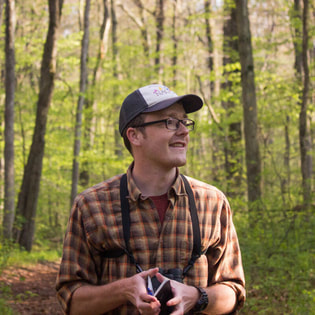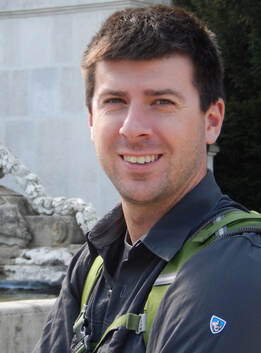Afternoon workshops will be held at Trent Universities Catherine Parr Traill College in Scott Hall room 105 (multipurpose room)
Workshops will be held Friday, March 24th, 2023, and last approximately 2 hours in length. Workshops will be in a hybrid format & attendees can participate in-person (held at Trent University) or virtually.
You must register for the conference to be eligible to participate. Space is limited.
You must register for the conference to be eligible to participate. Space is limited.
Introduction to stable isotope assignment in R | 9:30-11:30
For migratory wildlife populations, understanding the connections between breeding, non-breeding, and stopover locations is integral to their conservation and management. Intrinsic markers, such as stable isotopes, found within the tissues of migratory individuals offer an alternative to the use of transmitters and other extrinsic markers . Briefly, this method relates the stable-isotope values of consumer tissues to those of the environment (especially stable isotopes of hydrogen and oxygen in precipitation) to determine likely origins where tissues were grown. In recent years there has been a handful of packages released in the R statistical environment (isocat and AssignR) which have increased the functionality of these assignment methods and made them much more accessible. In this workshop, we will first present a short introduction to introduce the theory behind stable-isotope assignment, after which we will work through some example R script where we will, step-by-step, work though the procedures to determine the likely origins of unknown-origin migrants. No data is required by participants as everything will be provided during the workshop. This workshop is aimed at a general audience, but some knowledge in R is recommended.
Requirements: Laptop if you are intending to run the code simultaneously (a rmarkdown file will be provided).
Requirements: Laptop if you are intending to run the code simultaneously (a rmarkdown file will be provided).
Facilitator: Jackson Kusack, MSC
|
I’m a PhD candidate at Western University, in London Ontario where I live with my partner and two (indoor) cats. So far in my graduate research I have focused on birds (American Black Ducks, Barn Swallows, and House Finches), but my primary career goal is the conservation of Canadian wildlife in general. For my current PhD research, I use stable isotopes and band returns to better understand the connectivity of waterfowl populations in the Great Lakes.
|
Introduction to movement ecology in R | 12:30-2:30
*this workshop is now at capacity, if you register you will be placed on a waitlist *
This workshop will cover the basics of working with animal tracking data in R. Specifically, we will first discuss the ever-changing landscape of packages for working with animal tracking data and what options are best for getting started. The first half of the workshop will focus on developing fundamental skills for loading, processing, and managing animal tracking data in R. The second half of the workshop will involve learning tools for spatial analysis of animal tracking data. Specifically, we will learn how to analyze path movement metrics, compute animal home ranges, and integrate animal tracking data with other spatial layers (e.g., GIS and remote sensing data). To close, Participants will be exposed to more advanced techniques and pointed to resources for learning more.
Requirements: Participants are expected to have a basic understanding of data analysis in R, but no experience working with tracking data is necessary. Students may bring their own data or work from provided examples.
Requirements: Participants are expected to have a basic understanding of data analysis in R, but no experience working with tracking data is necessary. Students may bring their own data or work from provided examples.
Facilitator: Jed Long, phd
|
Dr Jed Long is an Associate Professor of GIScience in the Department of Geography & Environment at Western University. His research focuses on the quantitative and computational aspects of analyzing movement data – in both human and wildlife systems. He is the co-author of the (forthcoming) chapter ‘Spatial Analysis of Wildlife Movements’ in the upcoming 9th edition of The Wildlife Techniques Manual. He also developed the wildlifeDI R package which is widely used for studying spatial-temporal interactions in wildlife tracking data. He and his team have worked on a wide range of movement ecology applications ranging from understanding impacts of outdoor recreation activity on wildlife to global migrations of birds.
|
An Introduction to Bayesian Inference for Ecologists with R and JAGS | 2:45-4:45
*this workshop is now at capacity, if you register you will be placed on a waitlist *
The objectives of this workshop are to introduce you to Bayesian statistics and the implementation of Bayesian models using JAGS. The examples will focus on the analysis of data from mark-recapture models starting with classical models, like the Cormack-Jolly-Seber model, and building to more complex models including partially observed covariates. However, the goal is to provide a general understanding of the methods that will allow you to begin implementing your own data analysis using these powerful tools.
Requirements: Participants are expected to have an introductory knowledge of R and to have installed R, Rstudio, and the rjags package for R before attending the workshop.
Requirements: Participants are expected to have an introductory knowledge of R and to have installed R, Rstudio, and the rjags package for R before attending the workshop.
Facilitator: Simon Bonner, phd
|
Simon is an Associate Professor of Environmetrics in the Department of Statistical and Actuarial Sciences at the University of Western Ontario. He completed his PhD in statistics at Simon Fraser University in 2008 and held a position as a post-doctoral fellow at the University of British Columbia before taking up a position as an Assistant Professor at the University of Kentucky between 2010 and 2015. Simon’s research interests are in the area of statistical ecology, Bayesian inference, and statistical computing with a focus on methodology for analysing data from complex studies of marked individuals. He was a recipient of the NSERC Discovery Accelerator award in 2016 and is currently joint principal investigator on a Collaborative Research Team award from the Canadian Statistical Sciences Institute.
|


